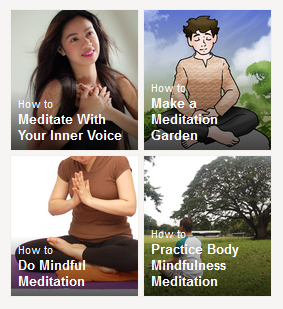Bhikkhu Bodhi (beyondthenet.net); Ashley Wells, Dhr. Seven (eds.), Wisdom Quarterly
 The Buddha says that he teaches only two things, disappointment (dukkha, suffering) and the end-of-disappointment (nirvana).
The Buddha says that he teaches only two things, disappointment (dukkha, suffering) and the end-of-disappointment (nirvana).
That is, he only finds two kinds of questions important. "What is suffering?" and "How do we achieve the end of suffering?"
In the First Noble Truth the Buddha deals with the problem of disappointment. But this truth is the first word, not the final word, of the Buddha's Teaching, the Dharma.
It is the starting point. Here the Buddha begins by talking about the unpleasant, the miserable, which many of us might feel is hopeless or pessimistic.
- "Hey cheer up, Buddha, and party with us -- not that you would know anything about 'partying' having spent 29 years as a prince living in three massive party palaces full of dancing girls, fabulous food and drink, musicians, minstrels, and the surfeit of princely trappings. It was a right royal rave in your private kingdom somewhere between Egypt and India. Never mind about that then. Hey, Buddha, teach us! We want to be free! We want to be liberated from this lack-of-fulfillment, this misery without end. Show us the way!"
 |
| Yoga Rave (artoflivingla.org) |
The Buddha begins with suffering because Buddhism is designed to bring about an end to ALL suffering. The Dharma, the Teaching, leads those who practice it to liberation.
 |
| Hey, A, please no Buddha selfies (AK) |
In order to get us there, the Buddha gives a reason for seeking freedom. For example, if a person does not know that the roof is on fire, one lives in that house enjoying oneself, playing, joking, and laughing. To get someone to come out, that person must first become aware that the house is burning, a dangerous smoldering mass soon to collapse and engulf everyone inside.
In the same way, the Buddha announces that our lives are burning. They are burning with rebirth, old age (decay), sickness, and death -- full of loss, separation, weeping, doing anything we can to never think about it, to divert ourselves with addictive sensual delights which we lose, which are hard to come by, and which we are often willing to kill for, to steal, to engage in misconduct, to lie, and to become intoxicated to get. We find temporary relief through them but never gain release.
 |
| Meditation Barbie: breatharian Amatue |
Our hearts/minds are aflame with greed (craving), hatred (fear and aversion), and delusion (confusion). It is only when we become aware of these perils that we have any chance of beginning to seek a way to release and freedom.
In the Second Noble Truth, the Enlightened One points out that we can do something about one of the causes of suffering and thereby undo all suffering. This weak link we can undermine is our craving, which we have been depending on for relief like drug addicts do their drug of choice.
 |
| Novices full of devotion (Dietmar Temps) |
It is our insatiable desire for a world of sights, sounds, fragrances, flavors, touch sensations, and ideas. Since one of the causes of disappointment is craving (along with aversion and delusion, spelling out as the key in the 12 links of the dependent origination of suffering), the key to reaching the end of disappointment is to undermine this very painful craving.
In the Third Noble Truth the Buddha, therefore, explains nirvana (nibbana) as the extinction of craving because it results in enlightenment and the end of suffering. [To break the chain of dependently arisen suffering only takes breaking one link, and the Buddha saw that it was here with this link, this obsessive craving, that we could make a complete end of suffering].
In the Fourth Noble Truth, the Buddha explains how, namely, the Noble Eightfold Path.
 |
| Ven. Bhikkhu Bodhi, what is Nirvana? What is the end-of-all-suffering? (Angelina K) |
- Psychological Dimension of Nirvana
- Philosophical Dimension of Nirvana
- Nirvana is an existing reality
- Is Nirvana conditioned by its path
- Is Nirvana mere annihilation ?
- The story of the Turtle and the Fish
- Two elements of Nirvana
- Experience of an Enlightened Person
- State of an enlightened person after passing away
- Mind Stilled

































































































































































































































No comments:
Post a Comment